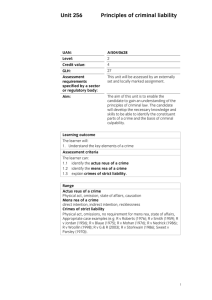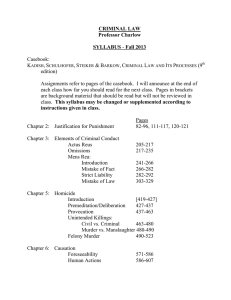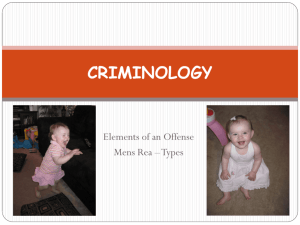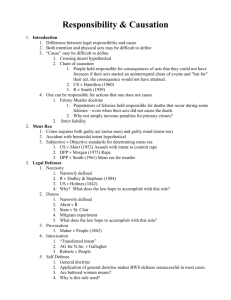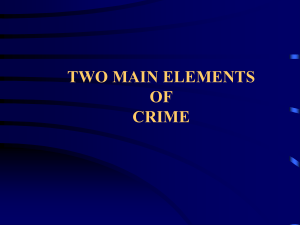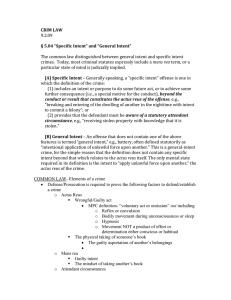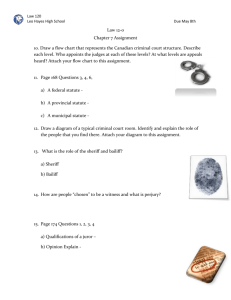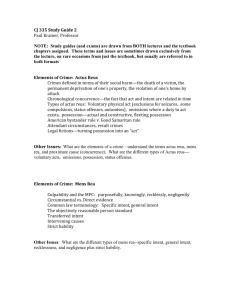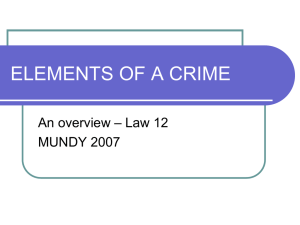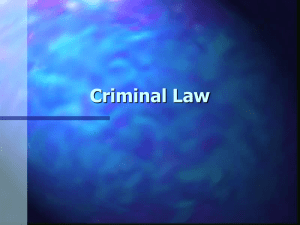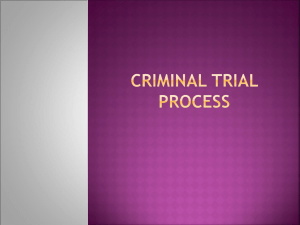Unit 3 Criminal Law
advertisement
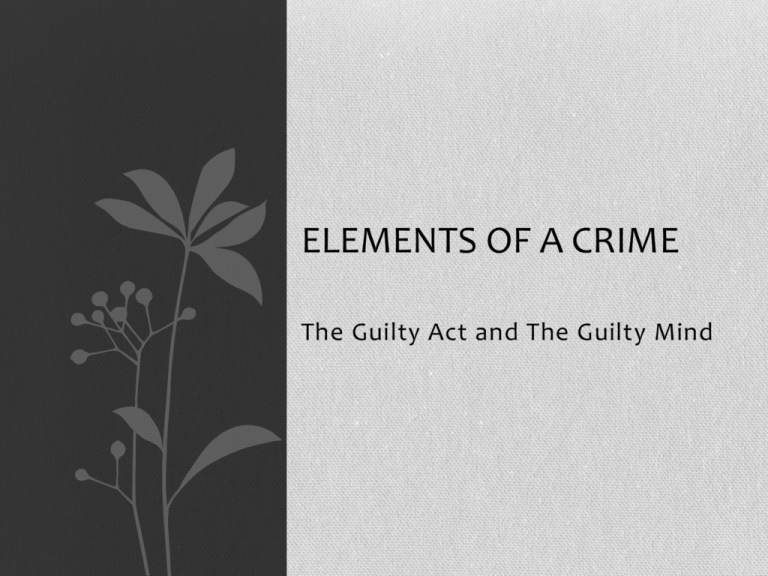
ELEMENTS OF A CRIME The Guilty Act and The Guilty Mind Criminal Code • Sect. 299. Culpable homicide is murder • a) where the person who causes the death of a human being • i) means to cause his death, or • Ii) means to cause him bodily harm that he knows is likely to cause his death, and is reckless whether death ensues or not The Elements of a Crime- Actus Reus Actus reus – wrongful deed Must be shown that the person committed an act prohibited by law Failure to do something (example: for parents to withhold the necessities of life for their children) In a court proceeding, the prosecutors have to prove that the accused actually committed the act The Elements of a Crime- the Mind Mens Rea – guilty mind Intent or Knowledge: based on the facts and what a reasonable person would be thinking under the circumstances • Intent – the true purpose of the act • General intent- intent is limited to the act itself (assault – crown need only prove the intent to apply force • Specific Intent- when the person committing the offence has a further criminal purpose • Law considers some people incapable of forming intent (mental illness, minors, being extremely drunk or high) The Elements of a Crime continued Mens Rea – guilty mind Intent or Knowledge Knowledge- knowledge of facts – prove mens rea Motive- reason for committing an offence Not the same as intent Does not establish guilt of the accused Can be used as circumstantial (indirect) evidence Recklessness Careless disregard for the possible result of an action People don’t intend to harm others however they understand the risks of their actions and proceed anyway Must be proven by the Crown attorney, beyond a reasonable doubt that actus reus and mens rea existed The Elements of a Crime continued • Willful Blindness: pretending not to know something • Our justice system does not allow people to turn a blind eye to the criminal truth • The average reasonable person is a standard applied in this casewould a reasonable person in a similar situation understand what is happening or not • Totally based on circumstance Offences without a Mens Rea Usually violations of federal or provincial regulations passed to protect the public (speeding) Regulatory offences Carry less penalties Don’t carry stigma associated with criminal convictions 2 Types Strict Liability Offences Absolute Liability offences Offences without a Mens Rea Continued 1. Strict liability offences : • The liability is said to be strict because the defendants will be convicted even though they were genuinely ignorant of one or more factors that made their acts criminal – no need to prove mens rea • Therefore it is only necessary to prove the offence was committed • Due diligence: defense used by the defendant (took care not to commit the offence or honestly believed in a mistaken set of facts) 2. Absolute liability offences: • Crown need only prove actus reus • no possible defence (no act was taken to prevent) • if the person committed actus reus, he or she is guilty, no matter what precautions were taken to avoid committing the offence (can’t use due diligence) • law does not specify which regulatory offences are strict liability or absolute • prison term for an absolute liability is unconstitutional Attempt • intends to commit the crime, but fails • actus reus for attempt begins in the first steps towards committing the crime (preparatory stages are decided by judge or jury) • can be tried for the act it’s self Conspiracy • agreement between two or more people to commit a crime or to achieve something legal by doing something illegal
